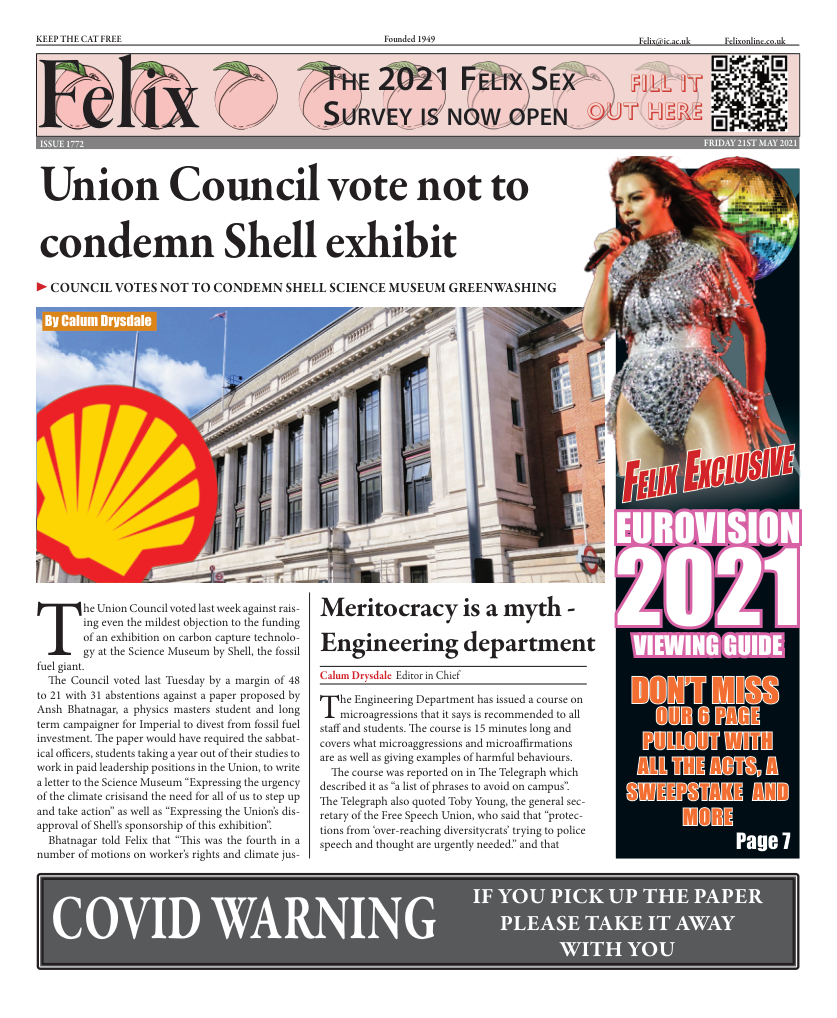Brexit unlikely to have any major impact on Imperial research funding
Brexit has had “no discernible impact” on Imperial College’s funding from the EU
Brexit has had “no discernible impact” on Imperial College’s funding from the EU, vice provost Nick Jennings has stated. When approached regarding potential discrepancies between departments’ funding after Brexit, Professor Jennings highlighted Imperial College’s exceptional track record in acquiring funding from all avenues, and added “As for Brexit, it has only just come into effect and so there is no discernible impact yet”.
The College carries out a bi-annual report on the state of funding from all sources, the results of which can be found on the College’s website.
The timing of Brexit coincided with the change-over to a new science funding system from Horizon 2020 to Horizon Europe which will fund European science until 2027. European science funding has increased across the board, with Horizon Europe’s budget being around 30% higher than that of Horizon 2020. The UK has previously been the second largest beneficiary of these funding schemes, lagging behind only Germany. Thankfully for the College, post Brexit negotiations agreed full access to such EU research funding programmes for UK institutions, however, did not include access to Erasmus, which will instead be replaced by the new British-funded Turing Scheme.
While the EU Commission has historically awarded Imperial a significant amount of money, totalling £192 million between 2015 and 2020, and a record £44 million in 2019/20 alone, this only made up little over 10% of total research funds.
EU Commission funding is also dwarfed by funding from other avenues such as UK research councils and charities. The Bill and Melinda Gates Foundation alone granted the College £34 million as an award for Malaria research in 2020 almost equalling the EU funding of that year.
While the EU is not a major funder of Imperial research, the sudden loss of ~10% of research budget is not trivial. The College’s March 2021 shows that the 2020/21 funding year has had the lowest funding application success rate on record. Projecting forward data from the first half of the year, funding from the EU can be expected to be a 1/3 than it was when Britain was still a member of the European Union. This is compounded further by weak application success rates from non-EU sources.
THE EU COMMISSION HAS HISTORICALLY AWARDED IMPERIAL A SIGNIFICANT AMOUNT
However, there remains hope that Imperial’s reputation as a centre of research excellence will insulate it from the worst effects of Brexit. Near the end of 2019 the Royal Society stated that R&D funding from the EU had dropped 28% since the announcement of Brexit. Imperial’s record runs quite contrary to this, and in fact the amount awarded by the EU Commission to Imperial has increased every full year since 2016. This suggests that the College has been able to make its case for funding heard, despite the turmoil affecting the rest of the sector.
What role of Britain’s own government will play in making up the shortfall in funding remains unclear. A central tenet of the Brexiteer’s dogma was that the EU was strangling innovation and science. Boris Johnson’s ‘levelling up” agenda is an attempt to make use of this putative opportunity. Measuring the flow of state money to Imperial is complicated by the numerous research councils that channel public money into universities, each of which receive money from a number of sources. In addition to this, some government departments have been known to award smaller sums of money targeted at specific research initiatives. Despite inexact figures, it is suggested that Imperial still manages to receive a significant share of the research budget, being awarded ~£194 million in total from the government, the NHS and research councils combined in 19/20. The March 2020 budget included an increase in R&D funding for universities by 20% to £10.36 billion and lays out a further increase to £22 billion by 2024/25. Assuming that Imperial continues to attract the same proportion of the expanded funding pool, the resultant increase in money would far outweigh the decline in EU funding.






